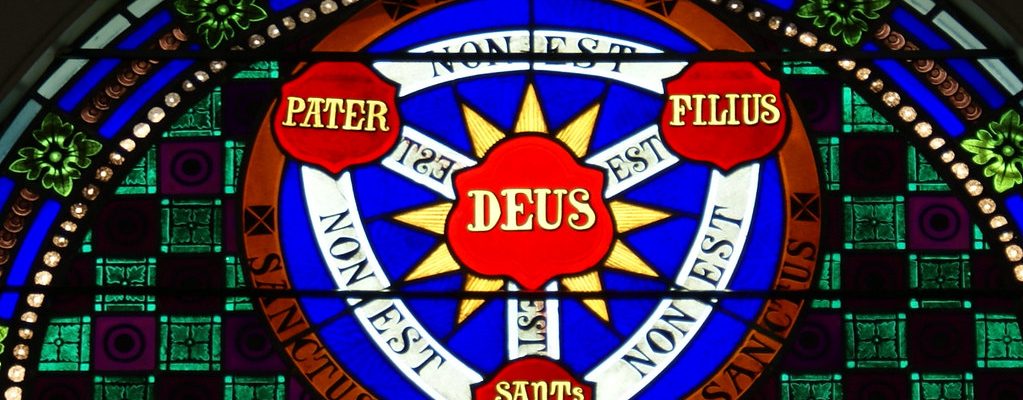
A link of Facebook (sorry, I don’t remember who posted it) took me to “Running Heads” blog. I was not familiar with it before, but this post was about baptism and it and the comments resonated with something I have long maintained. Modern American Evangelicalism has an odd intellectualism that leaves it vulnerable to erosion on all sides.
First, the blog post. Robin Parry was commenting that he grew up in a credo-baptist tradition [mfn]For those not familiar with this terminology, “credo-baptist” refers to being baptized once one has confessed their faith, as opposed to paedo-baptist which refers to the baptism of infants whose parents are members of the church.[/mfn], but has come to believe that rather than being “the Bible way” is, in fact, “sub-Biblical.” I want to say right away, I love that term and I intend to use it. His point is a great one.
The problem is that much evangelical theology simply makes baptism unnecessary (and this applies to many evangelicals in paedo-baptist traditions too — evangelical Anglicans, for instance, are so terrified of baptismal regeneration that they often water down NT theology too). We do it because Jesus told us to but for many of us, in our heart of hearts, we consider it anoptional extra. After all, the important stuff is repentance and faith and while baptism offers testimony to God’s work in our lives we hardly need to get batised to do that.
I confess I see myself in that paragraph and I accept the critique. One of the great things of my becoming an Anglican was realizing/discovering the “mystery” of faith. The term “mystery” here is used not in the Holmesian sense, there is nothing to be uncovered and explained, but rather in the historical and theological sense of something that is known only through revelation.
Tim Bulkeley question awoke in me my old conviction about evangelical intellectualism.
Is this influenced by the cerebral nature of Evangelicalism, it’s all about what you “believe” (= a list of doctrines = “think”). Thus the material “means of grace” are downgraded. E.g. communion and unction, see Jam 5:14, also… rather than needing to rethink (irony intended) baptism do we need to rediscover the power of the material in (spiritual) life?
There is a curious paradox that Evangelicals in the US are often considered anti-intellectual when in reality they bring a very deliberate intellectualism to their reading of the Bible and the living out of faith. Creationism is a great example. Those that hold to a very literal reading of Gen. 1-3 do so with an (unintentionally) ironic rational reading of the text. For example, they look for scientific evidence to support their reading of 6 days for creation.
With respect to baptism and what it means to “be” a Christian, as Tim suggests, there is a tremendous emphasis upon what one intellectually accepts. “I believe in Jesus Christ, his only son, our lord” means that I have become convinced and convicted that this is objectively true.

Anyone remember Evidence that Demands a Verdict? (What a relief, there is a new version! The New Evidence That Demands A Verdict Fully Updated To Answer The Questions Challenging Christians Today) It is predicated upon the assumption that things like the virgin birth, the resurrection, and miracles are able to be explained and defended in a scientific manner. In other words, the community that is most often accused of being anti-intellectual has been, in fact, deeply conditioned by the enlightenment to justify their beliefs with scientific evidence.
The result is that they leave themselves vulnerable on all sides. Since the resurrection is not something that can be proven scientifically or historically (which is not the same thing as saying it did not happen), such efforts will be fruitless and will be mocked by those who do confine their beliefs that only that which can be scientifically demonstrated. Such an approach thus also devalues the power and action of God, confining his work to only that which fits within this created world’s perimeters and, in the words of Robin, leads to an “impoverished theology.” If, on the other hand, one can accept the mystery of God then there can be a deeper understanding of God and our own spirituality.





One thought on “Intellectual Evangelicalism”
Having been raised in the conservative Baptist tradition, I found it to be a form of laziness and pride. We criticized academia, but then pretended to be academic in our approach. In some way, the very “biblical” criticism we used to identify the pride of intellectualism reflected more on us than we knew. Even worse, as you point out, we underminded faith. The “belief” of the creeds signals personal trust more than rational assent. I now worship as a Presbyterian and have a deep respect for Episcopal/Anglican faith. In contrast with being raised in a tradition that denied any value for tradition, I now appreciate the gift a tradition can be as a storehouse of personal knowledge and experience.